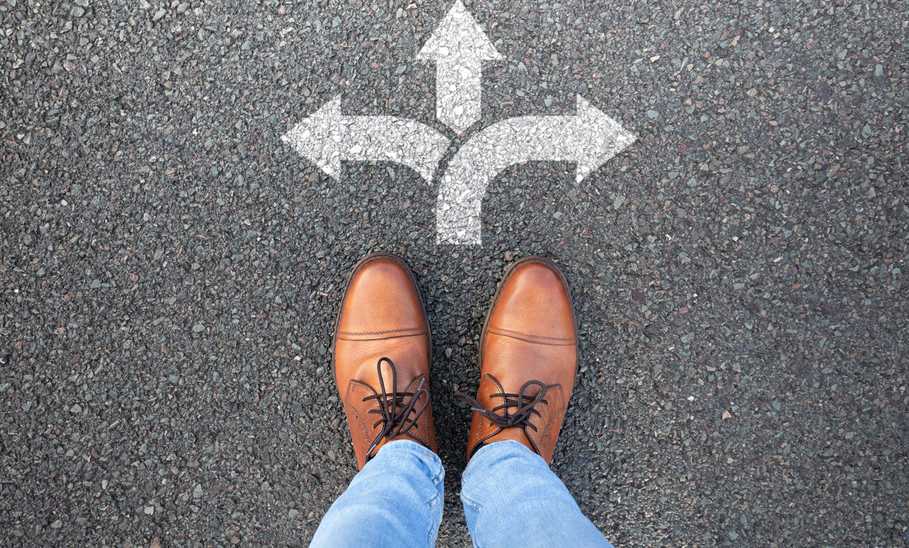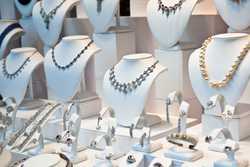How to Choose the Right Shoes for Your Feet

Our evaluations and opinions are not influenced by our advertising relationships, but we may earn a commission from our partners’ links. This content is created by TIME Stamped, under TIME’s direction and produced in accordance with TIME’s editorial guidelines and overseen by TIME’s editorial staff. Learn more about it.
Shoe shopping can be fun, but it also can be overwhelming as you want to ensure you’re selecting the right shoes for your feet. Whether you have a high or low arch, suffer from bunions, or a condition that requires specialty shoes, it takes some research to find your perfect pair. That’s why I tapped experts to learn more about strategies you can incorporate to make your next shoe shopping session easier.
Read on to learn more about how to choose the right shoes for your feet thanks to the insights I received from Mireille Blanchette, DPM, FACFAS, DABPM, CWSP, a triple board-certified podiatrist and owner of Comprehensive Foot and Ankle Care in Mountainside, New Jersey, Suzanne C. Fuchs, DPM, Jupiter, Florida-based board-certified podiatrist at Luxe Podiatry, Anne M. Sharkey, DPM, FACFAS, board certified foot & ankle surgeon at North Austin Foot & Ankle Institute, and Bruce Pinker, DPM, AACFAS, FAPWCA, DABPM, FACPM, foot and ankle surgeon at Progressive Foot Care in New York.
According to Dr. Fuchs, good shoe fit is important because shoes help maintain proper foot alignment and function. Without good shoe fit, a myriad of foot and other medical issues can arise as a result. “Poor shoe fit can cause many problems, especially from shoes that are too tight,” says Dr. Blanchette. “This can cause rubbing, pain, calluses, and corns in addition to nail problems which can mimic fungus.” She adds that big shoes can cause wearers to experience an excess of motion which may lead to feet becoming irritated or developing blisters — and nobody wants that.
Situational conditions are important to consider when choosing the right shoe for your feet. Dr. Fuchs notes that you should keep in mind the activities during which you’ll be wearing your shoes to determine whether or not they are right for you. “It's important to consider the specific activities or conditions you will be using the shoes for (e.g., running, walking, high-impact sports, flat feet, etc.),” says Dr. Fuchs. For example, the shoes you find right for line dancing may not be the right ones for frequent hikes. Whether you’re shopping for shoes for standing all day or flat-feet shoes, knowing what makes each shoe unique is essential.
If you have swollen feet or are shopping for the right shoes for someone with swollen feet, Dr. Blanchette recommends shopping in the afternoon as that is when feet are typically the most swollen.
Dr. Pinker notes that knowing the type of arch you have is essential to picking out the right pair of shoes. “One needs to know whether or not they have a low arch, average arch, or high arch,” explains Dr. Pinker. “This can be determined by stepping onto a large piece of paper after applying water to one's feet and observing if the outline on the paper is a skinny question mark-like shape, which indicates a high arch, or a flat oval which indicates a low arch.”
If you have a podiatric issue that requires special footwear or shoes, it’s important to know about the type of shoes that are required to keep your feet as healthy as possible. For example, if you have diabetes, you may need special footwear that is different from those that someone who suffers from corns and ingrown toenails may require.
Shoes (if right for you) can reduce pain in many areas. Dr. Pinker notes that shoes can reduce arch pain by providing proper arch support, and shoes with supportive and high-quality cushioning can reduce knee pain and lower-back pain.
Shoes can change the positioning of one’s feet. For instance, “shoes that are narrow at the toe box can cause the joints to be in an abnormal position,” notes Dr. Sharkey. On the other hand, high-quality shoes that fit well (and leave about a thumb’s length of space between your big toe and shoe’s end) help your foot to stay aligned healthily, adds Dr. Fuchs.
Testing if a shoe is right for you is important and the process varies depending on whether you’re simply looking for a shoe that’s comfortable, or one that provides comfort and support if you have a medical problem that requires specialty footwear. That said, Dr. Blanchette notes it’s a common misconception that shoes require a break-in period. “A shoe with a good fit should feel good right away when purchased,” says Dr. Blanchette. “There should not be a break-in period for a shoe.” However, she explains that this process is nuanced for those who suffer from foot podiatric issues and conditions as one needs to evaluate or visit their doctor regularly to ensure that no irritation develops over time.
Dr. Fuchs adds that shoes should allow for your feet to move naturally and without pressure or discomfort—if you experience these symptoms, it’s either time for a new pair of shoes or speak with your podiatrist about how they can be adjusted to best maintain overall foot health.
Orthotics can provide extra support for your feet, especially if they are custom-made and/or prescribed by your doctor. “For better support, custom-made orthotics are recommended, often prescribed by a podiatrist,” says Dr. Pinker.
If your foot arch is causing you pain, an arch support may help. “Those with low arches often benefit from added arch support found in the midsole or insole of different types of footwear,” says Dr. Pinker.
Insoles are often easily accessible and available at Amazon or your local shoe store. These pieces often increase the level of shock absorption so you’ll experience less pain and aches.
One of the first places you’ll want to visit for help with choosing the right shoes for your feet is your podiatrist’s office, especially if you suffer from peripheral neuropathy, diabetes, bad circulation, or deformities, as many specialty shoes can be covered by insurance notes Dr. Blanchette. And, after looking at your foot type, a podiatrist can make personalized recommendations—as shoe shopping is not a one-size-fits-all situation, adds Dr. Fuchs.
Shoe stores are another great place to inquire about the right shoes for your feet, as they often have knowledgeable associates who can look at your feet and measure them using specialty tools. They can also make recommendations, such as for running shoes or walking shoes.
The information presented here is created by TIME Stamped and overseen by TIME editorial staff. To learn more, see our About Us page.



